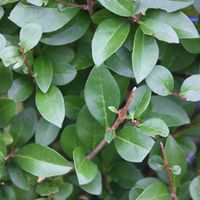Contionary:lupentus: Difference between revisions
Jump to navigation
Jump to search
Tags: Mobile edit Mobile web edit |
|||
| (7 intermediate revisions by the same user not shown) | |||
| Line 1: | Line 1: | ||
==Aeranir== | ==Aeranir== | ||
[[File:104937.jpg|200px|thumb|''{{term| | [[File:104937.jpg|200px|thumb|''{{term|ēta}} '''lupenta''''']] | ||
[[File:Pl0000004093.jpg|200px|thumb|''{{term|fromar}} ''' | [[File:Pl0000004093.jpg|200px|thumb|''{{term|fromar}} '''lupentar''' {{term|neprar}}'']] | ||
===Etymology=== | ===Etymology=== | ||
From [[Aeranir#Old Aeranir|Old Aeranir]] ''''' | From [[Aeranir#Old Aeranir|Old Aeranir]] '''''lupentos''''', from [[Aeranir#Proto-Iscaric|Proto-Iscaric]] ''*lupəntos'', from [[Proto-Maro-Ephenian]] ''{{term|*r₂lewp-}}''. | ||
Originally referred to new or fresh grass and plant life (e.g. watery; full of water), but meaning shifted over time to refer to the colour of fresh grass. | |||
===Pronunciation=== | ===Pronunciation=== | ||
(''Old'') [[Guide:IPA|IPA]]: [ | * (''Old'') [[Guide:IPA|IPA]]: [ˈlu.pen̪.t̪os̠] | ||
(''Classical'') [[Guide:IPA|IPA]]: [ | * (''Classical'') [[Guide:IPA|IPA]]: [ɫɯˈpʰɛ̃n̪.t̪ɯs] | ||
('' | * (''Caunine'') [[Guide:IPA|IPA]]: [ɫɯˈpʰɛ̃n̪.t̪ɯs] | ||
(''Late'') [[Guide:IPA|IPA]]: [ɫəˈpɛ̃n̪.t̪os̠] | * (''Late'') [[Guide:IPA|IPA]]: [ɫəˈpɛ̃n̪.t̪os̠] | ||
===Adjective=== | ===Adjective=== | ||
''' | '''lupentus''' (''cyclical'' '''{{term|lupenta}}''', ''eternal'' '''{{term|lupentun}}''') | ||
# green; bright green, like new grass or leaves | # green; bright green, like new grass or leaves | ||
# fresh, bright, young | # fresh, bright, young | ||
| Line 21: | Line 20: | ||
{| class="mw-collapsible mw-collapsed" style="width: 50%; background: white;" | {| class="mw-collapsible mw-collapsed" style="width: 50%; background: white;" | ||
|- style="background: lightgrey;" | |- style="background: lightgrey;" | ||
! colspan="7" | Declension of '' | ! colspan="7" | Declension of ''lupentus'' | ||
|- style="background: LightSteelBlue;" | |- style="background: LightSteelBlue;" | ||
! rowspan="2" | | ! rowspan="2" | | ||
| Line 36: | Line 35: | ||
|- style="text-align:center; background: GhostWhite;" | |- style="text-align:center; background: GhostWhite;" | ||
! style="background: LightSteelBlue;" | nominative | ! style="background: LightSteelBlue;" | nominative | ||
| '' | | ''lupentus'' | ||
| rowspan="2" | '' | | rowspan="2" | ''lupentur'' | ||
| rowspan="2" | '' | | rowspan="2" | ''lupenta'' | ||
| rowspan="2" | '' | | rowspan="2" | ''lupentar'' | ||
| rowspan="3" | '' | | rowspan="3" | ''lupentun'' | ||
| rowspan="3" | '' | | rowspan="3" | ''lupentunt'' | ||
|- style="text-align:center; background: GhostWhite;" | |- style="text-align:center; background: GhostWhite;" | ||
! style="background: LightSteelBlue;" | vocative | ! style="background: LightSteelBlue;" | vocative | ||
| '' | | ''lupente'' | ||
|- style="text-align:center; background: GhostWhite;" | |- style="text-align:center; background: GhostWhite;" | ||
! style="background: LightSteelBlue;" | accusative | ! style="background: LightSteelBlue;" | accusative | ||
| '' | | ''lupentun'' | ||
| '' | | ''lupentī'' | ||
| '' | | ''lupentan'' | ||
| '' | | ''lupentae'' | ||
|- style="text-align:center; background: GhostWhite;" | |- style="text-align:center; background: GhostWhite;" | ||
! style="background: LightSteelBlue;" | essive | ! style="background: LightSteelBlue;" | essive | ||
| '' | | ''lupentū'' | ||
| '' | | ''lupentur'' | ||
| '' | | ''lupentau'' | ||
| '' | | ''lupentur'' | ||
| '' | | ''lupentū'' | ||
| '' | | ''lupentur'' | ||
|- style="text-align:center; background: GhostWhite;" | |- style="text-align:center; background: GhostWhite;" | ||
! style="background: LightSteelBlue;" | instrumental | ! style="background: LightSteelBlue;" | instrumental | ||
| '' | | ''lupentōrun'' | ||
| '' | | ''lupentōs'' | ||
| '' | | ''lupentārun'' | ||
| '' | | ''lupentōs'' | ||
| '' | | ''lupentōrun'' | ||
| '' | | ''lupentōs'' | ||
|- style="text-align:center; background: GhostWhite;" | |- style="text-align:center; background: GhostWhite;" | ||
! style="background: LightSteelBlue;" | genitive | ! style="background: LightSteelBlue;" | genitive | ||
| '' | | ''lupentī'' | ||
| '' | | ''lupentōvus'' | ||
| '' | | ''lupentae'' | ||
| '' | | ''lupentāvus'' | ||
| '' | | ''lupentī'' | ||
| '' | | ''lupentōvus'' | ||
|- style="text-align:center; background: GhostWhite;" | |- style="text-align:center; background: GhostWhite;" | ||
! style="background: LightSteelBlue;" | dative | ! style="background: LightSteelBlue;" | dative | ||
| '' | | ''lupentō'' | ||
| '' | | ''lupentōna'' | ||
| '' | | ''lupentō'' | ||
| '' | | ''lupentāna'' | ||
| '' | | ''lupentō'' | ||
| '' | | ''lupentōna'' | ||
|- style="text-align:center; background: GhostWhite;" | |- style="text-align:center; background: GhostWhite;" | ||
! style="background: LightSteelBlue;" | ablative | ! style="background: LightSteelBlue;" | ablative | ||
| '' | | ''lupentā'' | ||
| '' | | ''lupentōs'' | ||
| '' | | ''lupentā'' | ||
| '' | | ''lupentās'' | ||
| '' | | ''lupentā'' | ||
| '' | | ''lupentōs'' | ||
|- style="text-align:center; background: GhostWhite;" | |- style="text-align:center; background: GhostWhite;" | ||
! style="background: LightSteelBlue;" | locative | ! style="background: LightSteelBlue;" | locative | ||
| '' | | ''lupentīs'' | ||
| '' | | ''lupentā'' | ||
| '' | | ''lupentīs'' | ||
| '' | | ''lupentā'' | ||
| '' | | ''lupentīs'' | ||
| '' | | ''lupentā'' | ||
|} | |} | ||
====Derived terms==== | ====Derived terms==== | ||
* ''{{term| | * ''{{term|lupentia}}'' ("field, plain, green; nature") | ||
* ''{{term|lupeor}}'' ("I am green, fresh, young") | * ''{{term|lupeor}}'' ("I am green, fresh, young") | ||
====Descendants==== | ====Descendants==== | ||
* Ilesse: ''{{term| | * Iscariano: ''{{term|lovenno}}'' | ||
* S'entigneis: ''{{term| | * Ilesse: ''{{term|lubentu}}'' | ||
* Tevrés: ''{{term| | * S'entigneis: ''{{term|louvenz}}'' | ||
* Tevrés: ''{{term|lluvientos}}'' | |||
====See also==== | ====See also==== | ||
Latest revision as of 11:02, 15 November 2019
Aeranir


Etymology
From Old Aeranir lupentos, from Proto-Iscaric *lupəntos, from Proto-Maro-Ephenian *r₂lewp-.
Originally referred to new or fresh grass and plant life (e.g. watery; full of water), but meaning shifted over time to refer to the colour of fresh grass.
Pronunciation
- (Old) IPA: [ˈlu.pen̪.t̪os̠]
- (Classical) IPA: [ɫɯˈpʰɛ̃n̪.t̪ɯs]
- (Caunine) IPA: [ɫɯˈpʰɛ̃n̪.t̪ɯs]
- (Late) IPA: [ɫəˈpɛ̃n̪.t̪os̠]
Adjective
lupentus (cyclical lupenta, eternal lupentun)
- green; bright green, like new grass or leaves
- fresh, bright, young
- (substantive) greenery, fresh plants; nature
Declension
| Declension of lupentus | ||||||
|---|---|---|---|---|---|---|
| temporary | cyclical | eternal | ||||
| singular | plural | singular | plural | singular | plural | |
| nominative | lupentus | lupentur | lupenta | lupentar | lupentun | lupentunt |
| vocative | lupente | |||||
| accusative | lupentun | lupentī | lupentan | lupentae | ||
| essive | lupentū | lupentur | lupentau | lupentur | lupentū | lupentur |
| instrumental | lupentōrun | lupentōs | lupentārun | lupentōs | lupentōrun | lupentōs |
| genitive | lupentī | lupentōvus | lupentae | lupentāvus | lupentī | lupentōvus |
| dative | lupentō | lupentōna | lupentō | lupentāna | lupentō | lupentōna |
| ablative | lupentā | lupentōs | lupentā | lupentās | lupentā | lupentōs |
| locative | lupentīs | lupentā | lupentīs | lupentā | lupentīs | lupentā |
Derived terms
Descendants
- Iscariano: lovenno
- Ilesse: lubentu
- S'entigneis: louvenz
- Tevrés: lluvientos
See also
| Colours in Aeranir • ētar | ||||
|---|---|---|---|---|
| lucer, solleus, helior | sater, tūvus | |||
| arheor, rex, vīntus | vīntus | helior, malhus | ||
| malhus | lupentus, lupeor | |||
| solleus | ||||